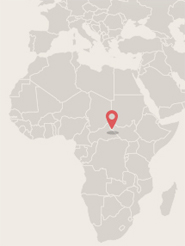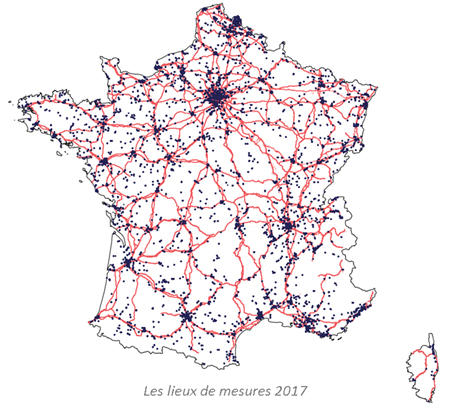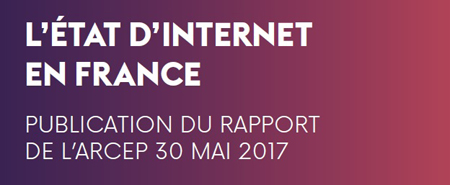 |
Regulation in action
The telecoms market: investment revival
On 19 May Arcep published its provisional estimates for telecom market growth in 2016 and marked the occasion by holding a press conference, with several dozen journalists and financial analysts in attendance.
And if we had to boil it down to just five numbers?
8.9 billion euros
A record high. The amount that France’s four carriers invested in 2016, excluding spending on frequencies, increased by 13.4% to reach 8.9 billion euros. The reason: an increase in capital expenditures on fixed and mobile superfast network rollouts, which totalled 3 billion euros (+25.1% YoY).
+ 10 million 4G users
This is the number of additional 4G network users compared to the previous year. The total number of 4G customers stood at close to 32 million in 2016 (or 44% of all SIM cards) and they are the ones responsible for the vast majority of mobile data traffic in France: accounting for 85% of total consumption.
5.4 million superfast access lines
The migration to superfast access is off and running! For the past two years, only superfast internet access subscriptions have increased: totalling 5.4 million in 2016 (+ 1.2 million YoY).
Ranking 24th and 26th in Europe
But a big push is still needed in France to get up to speed on the connectivity front. According to the European Commission’s DESI 2017 Index, France continues to linger at the bottom of the connectivity rankings. It is in 24th place in the European Union in terms of operators’ average 4G coverage rates (calculation corrects a material error in average 4G coverage rates in France in 2016 (78.3% instead of 68.8%)) and ranks 26th in fixed superfast broadband deployment.
On 23 May Arcep also published the latest figures on telecom services in French overseas departments and territories, which are available department by department.
All of these figures are available as open data on the Arcep and Etalab websites!
Scorecard (provisional, 2016)
Scorecard – overseas market figures (provisional, 2016)
Price index (2016)
All of the open data files
Press conference slides (in French)
Interview with Sébastien Soriano, Arcep Chair and BEREC Chair for 2017, in the Figaro: “Télécoms, la consolidation n’est pas nécessaire“ (in French)
|  |
 |
|
On our radar
| |
Mounir Mahjoubi, Secretary of State for Digital Affairs
Mounir Mahjoubi has just been appointed France’s new Secretary of State for Digital Affairs: a subject that he knows well as he was head of CNNum in 2016.
| 
|
|
| |  | |
News from around the world
The mobile market: driving force behind Africa’s digital ecosystem
Africa’s mobile market is now one of the largest in the world, with some 1 billion active SIM cards being used by close to 1.3 billion people. According to a GSMA report published in July 2016, the continent was home to 550 million mobile subscribers at the end of 2015, a figure that could climb to 725 million by 2020.
The mobile market has been the chief driving force behind an entire digital ecosystem capitalising on this connectivity:
. The banking sector, which has been shaken up by the arrival of operators such as Orange Bank and M-Pesa. With a relatively small banked population (i.e. people with a bank account) and the fast-growing adoption of mobile services, mobile banking services in Africa have proven a popular alternative to traditional bank accounts.
. The trade sector is also benefitting from this healthy momentum, with the advent of online shopping sites such as e-commerce platform, Jumia (a subsidiary of Germany’s Rocket Internet).
The expansion of this new digital ecosystem raises several questions: regulatory, notably regarding mobile operators’ banking activities, the security of transactions and the fight against money laundering.
|
| |
 |

Arcep likes
TransAlgo
Algorithms are everywhere. But do we really know how they work? Why does the price of tickets go up each time we visit certain websites, for instance? Or what criteria does a GPS app use to provide driving directions? To tackle this multifaceted (encompassing consumer information, neutrality, trustworthiness, fairness, non-discrimination, the fight against unfair competition…) issue, in December 2016 INRIA launched the TransAlgo platform to promote transparent and responsible algorithms and data. An initiative designed to serve public and private sector players alike, instigated by the Digital Republic Act, with the support of CNNum and the Institut Mines-Telecoms, TransAlgo is a first in Europe!
Find out more (in French)
|  | | | | |
|
 |
Field notes
Measuring mobile service quality: a real puzzle!
Once again this year, Arcep expanded the number of measurements taken in the field to deliver its scorecard on the quality of service provided by mobile operators in Metropolitan France.
For the 2017 edition, some 60 testers equipped with around 150 smartphones spent more than 10 weeks criss-crossing the whole of France: its cities, countryside and transportation systems (TGV high-speed rail, motorways and undergrounds, tunnels included). After travelling more than 50,000 km of roadways, 1,200 hours on trains and visiting 1,700 municipalities along the way; after generating some 800 hours of calling and 1.5 Tb of data traffic, the one million measurement puzzle pieces of the 2017 mobile service QoS audit were delivered to Arcep.
To see what the finished puzzle looks like: go to monreseaumobile.fr on 22 June.
 |  |
 |
Arcep, telling it like it is
 Starting on 15 June, European mobile users will be able to call, surf the web and download files without borders and without added fees in any European Union country, using their regular national mobile plan. The European Commission’s FAQ page calls the new plan “Roam Like at Home”.
Starting on 15 June, European mobile users will be able to call, surf the web and download files without borders and without added fees in any European Union country, using their regular national mobile plan. The European Commission’s FAQ page calls the new plan “Roam Like at Home”.
To achieve this elimination of roaming charges, Arcep played an active role in the work that BEREC (Body of European Regulators for Electronic Communications) did to help the European Commission to produce draft regulations, and to enforce them.
The fruit of this work: over 15 opinions and technical reports on how the roaming market operates, and particularly on retail market pricing and wholesale market competition, along with eight guideline documents aimed at all European regulators, debated then drafted by the working group.
At the national level, discussions with operators, which Arcep met with on a very regular basis, helped in defining French authorities’ positions during negotiations over European texts. A leitmotiv for the team devoted to the issue: ensuring that applying the provisions contained in the plan across Europe is to the benefit of consumers, while also protecting competition in the marketplace.
Lénaïg Catz, Julien Gilson, Guillaume Mellier et Mohamed Toumi
The pilot team
|  |
 |
Mark your calendar

Presentation of the first “Annual report on the state of the internet in France”
On 30 May, Arcep will be publishing its first annual report on the state of the internet in France. A centrepiece of economic, social and government life, the internet has become a “common good,” which must satisfy stringent demands in terms of performance and remain neutral. Arcep thus works to guarantee that no economic force is in a position to control or curb users’ ability to exchange information.
The report thus provides a detailed inventory of:
· The quality of internet access services;
· Data interconnection;
· Deployment of IPv6;
· Net neutrality;
· The openness of platforms, with a particular focus on devices.
A presentation of the report, followed by several debates with key stakeholders, will take place at 9:30 am on 30 May at La Paillasse.
Find out more (in French)
|  |
 |
7 June in Brussels
BEREC public debriefing
On 7 June BEREC will be holding a press conference in Brussels. On the agenda: the new roaming guidelines, the review of Europe’s telecom regulatory framework and the launch of two public consultations, one on the quality of internet services and the other on BEREC’s strategy.
To register
7, 8 and 9 June in Nantes
Web2Day 2017
The 9th edition of Web2Day will take place on 7 to 9 June on the island of Nantes. A festival celebrating new technologies and innovation, Web2Day is more than 200 conferences and workshops in an exhibition village of some 3,000 m². It also sheds a spotlight on start-ups, playing host to the finale of Global Challenge for helping start-ups with their fundraising.
Find out more
8 June in London
FT Future of Media and Telecoms: Deal-making and Disruption in Uncertain Times
The Financial Times will be hosting a day of debate over the convergence of media and telecoms, on 8 June in London. Sébastien Soriano, Arcep Chairman and BEREC Chair for 2017, will be among the speakers.
Find out more
From 8 to 10 June in Ile-de-France
Futur en Seine
THE festival devoted to digital innovation will be taking over the Grande Halle de la Villette for three days this year. The central focus this year will be on “intelligence,” against a backdrop of the ongoing development of artificial intelligence technologies.
Free and open to all!
Find out more
15, 16 and 17 June in Paris
Viva Technology 2017
The place to be for devotees of innovation and start-ups, for its second edition Viva Technology will play hose to 20 labs (…) and 5,000 start ups. Eric Schmidt (Alphabet), Tim Armstrong (AOL), Daniel Zhang (Alibaba), Claire Gilmartin (Trainline) will be among the speakers on hand to share their views on future technological developments, and the world of tomorrow.
Find out more
| |

 |
|  |
|

